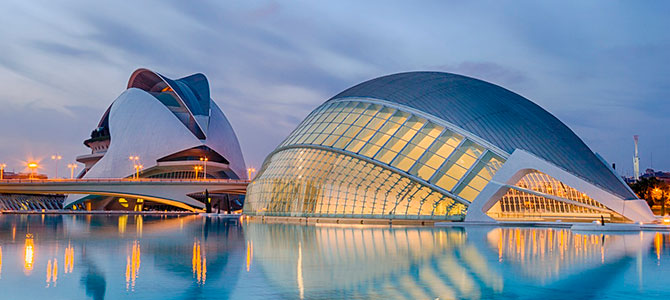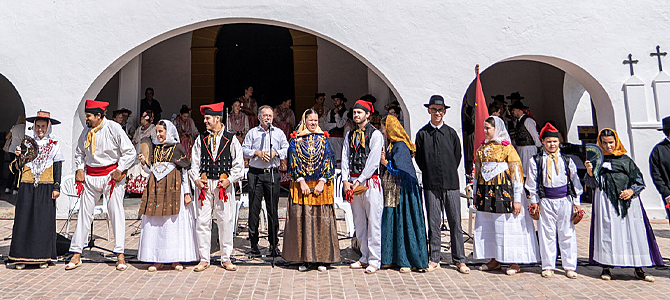In the heart of the Alcornocales Nature Reserve, in the province of Cadiz, lies Castellar de la Frontera, one of the most beautiful villages in Spain, which stands out for its medieval architecture and its rich history and culture.
Castellar de la Frontera is made up of three distinct population centres. The first is the Pueblo Viejo de Castellar, the original settlement which stands out for its historic charm. The second is the Pueblo Nuevo de Castellar, founded in 1971 to offer its inhabitants more modern and comfortable infrastructures. The third is La Almoraima, whose origins date back to a Muslim watchtower that is still preserved.
A Journey through time
The Old Town of Castellar de la Frontera, also known as Castellar Vieja, is a hidden gem inside a fortress of medieval origin. Its strategic position on the top of a mountain made it an ideal enclave for various cultures throughout history. However, the structure we see today is mainly the work of the Muslim period, the most important of all. This enclave played a crucial role in the border wars between Arabs and Christians until its conquest and incorporation into the Christian crown in 1434. Crossing the Puerta de la Villa is like entering a different world, where the past comes alive in every corner.
Neither Muslims nor Christians were the first inhabitants of this place. There is evidence that it was already inhabited during the Palaeolithic period, as evidenced by the numerous cave paintings found in the vicinity.
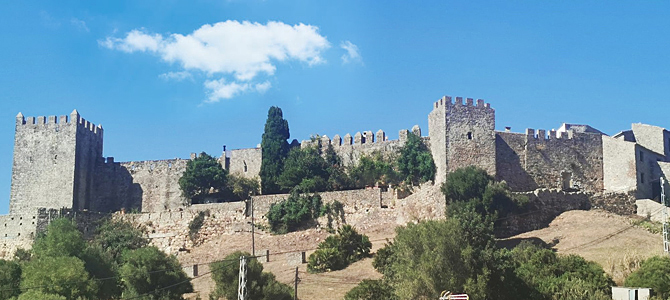
On arriving in Castellar, the first thing that impresses us is its 13th century castle. This castle was strategically used as a border defence point between Christian and Muslim kingdoms, and today we can admire a combination of Arab and Gothic styles.
Although it has experienced much deterioration throughout its history, the fortress has now been restored. Its defensive structure of towers and walls is a living testimony to its Islamic and Christian history. Highlights include the Patio de Armas, the Church of the Divino Salvador which is now a cultural centre where exhibitions, concerts and other events are held, the Torre del Homenaje and the Aljibe, an essential structure in times of siege.
As we enter the historic quarter, we start to walk through winding, narrow, cobbled streets of obvious Islamic origin. On both sides we find small whitewashed houses with brightly coloured doors and balconies. The streets and small squares are decorated with pots full of plants, flowers and creepers.
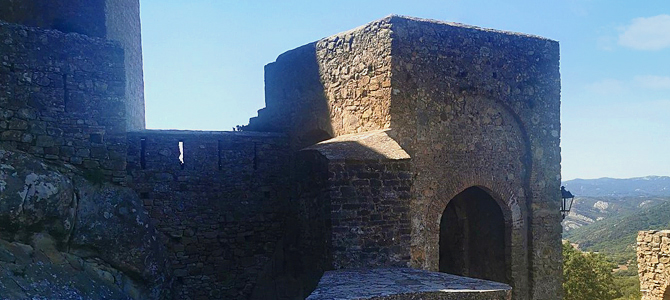
During the 1970s, Castellar Viejo attracted a community of European hippies who settled in the village and left an indelible mark on its culture. Today, the narrow, whitewashed streets of the fortress are lined with craft, music and art shops, a direct legacy of those times.
Although it won’t take long to walk around the entire area protected by the old fortress, it is worth taking a leisurely stroll and stopping at the viewpoint known as the Balcón de los Amorosos. At the end of a small street, this viewpoint offers enviable views over the Guadarranque reservoir.
La Almoraima: an oasis of nature and history
Outside, between Castellar Viejo and Nuevo Castellar, this location began with a watchtower of Muslim origin, built on a hill for surveillance purposes, from where other nearby towers or castles were alerted to possible dangers. While other similar towers crumbled over time, this one halted its deterioration when a Guardia Civil barracks was built next to it in the 19th century, which used the tower as a prison. Highlights include the brilliant views of the grounds from the tower, the courtyard with vestiges of a cloister and the chapel.
Nearby, the Convent of San Miguel de la Almoraima does not bear its name by chance. Founded in 1603 by the Countess of Castellar for the friars of the Barefoot Mercedarian Brothers, it was occupied by them until the 19th century, when it passed into the hands of the Duke of Medinaceli, who transformed it into a recreational and hunting estate. An extensive estate of 14,000 hectares that offers a variety of outdoor activities, it is known for its hiking trails and wildlife observation. Among its trails, the Monarch Butterfly trail stands out, a 5.5 kilometre walk that allows you to enjoy nature in its purest state.
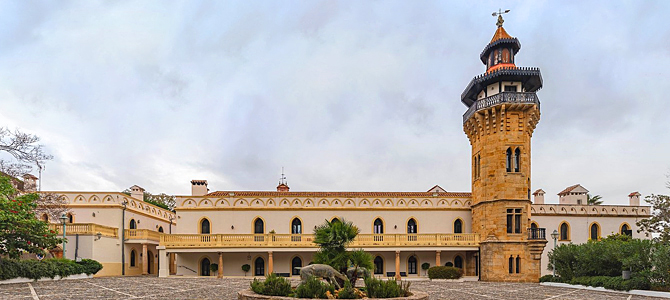
Nuevo Castellar: modernity and comfort
About 9 kilometres from the old fortress is Nuevo Castellar, a village created in the 1970s when the inhabitants decided to move to a more accessible location.
The development of the Pueblo Nuevo de Castellar de la Frontera and the subsequent relocation of the population were made possible by the construction of the reservoir in the 1960s.
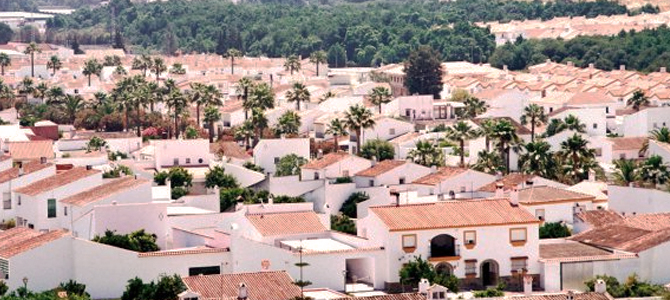
This modern settlement is spacious and comfortable, with wide streets and numerous green areas, offering a stark contrast to the historic atmosphere of Castellar Viejo.
While the authentic charm lies in the Old Town, the New Town also offers more contemporary elements ideal for a leisurely stroll through the streets.
Gastronomy and tradition in Castellar de la Frontera
The gastronomic offer in Castellar de la Frontera is another of its great attractions. In its bars and restaurants you can sample traditional Andalusian cuisine, with game specialities such as partridge pâté and rice with Iberian prey, a real delight for the senses.
Visiting Castellar de la Frontera is an experience that combines history, culture and nature in a unique way. Since 2020 it has been part of the association of the Most Beautiful Villages of Spain, a network made up of municipalities with less than 15,000 inhabitants that have passed very demanding criteria in order to form part of this select club.
At Vacalia we have many accommodation options near this special place, so don’t hesitate to visit it on your next holiday.



